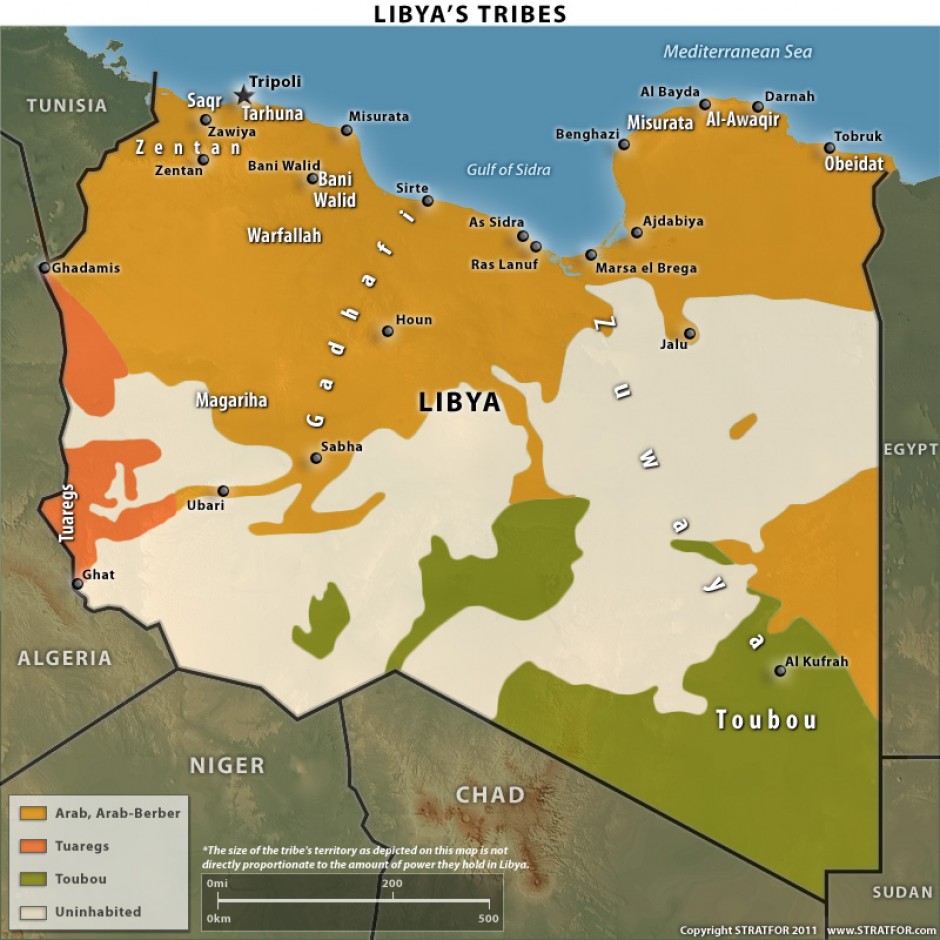The current situation in Libya is perplexing. Since the beginning of the crises in February 2011, scholars, analysts and observers are quite anxious about what is happening in Libya. They are doing arduous efforts trying to identify the problems and propose workable solutions. In other words, their primary focus is on how to stop the ongoing violence, bring peace, order and improve socio-economics in the entire country. Most observers have distinct perceptions, good analysis, approaches and workable recommendations for better solutions. William Danvers is one of these observers and pioneer advocate of peaceful and prosperous Libya. He is a Senior Fellow at the Center for American Progress. In his recent report, “Next Steps in Libya: Economic and Government Stabilization in the Face of Political and Security Challenges”, published in Wednesday, July 27, 2016, Danvers made compelling arguments about the current situation in Libya. His central idea is how to bring peace, build strong government, institutions, revive Libya’s economy and move it forward. No doubt, he tackles the problems in very professional manner. One of his main points is that “having a functional and unified government will make Libya more secure and help to rebuild its economy and government”. Further, he outlined some concerns about security, political settlement, institutions and socio-economic issues. In sum, Danvers made very reasonable descriptive and normative analysis, and concluded his report with strategic recommendations.
In terms of systemic thinking, Danvers’ idea about the situation in Libya is constructive and practical. Without a doubt, his economic analysis is very important to Libya as well as to its future progress. We at The Key Group, truly, see that Danvers did very good evaluation and strong proposal for practical solution to Libya’s current puzzling problems. One can even go further and say that Danvers’ recommendations should be considered as one of the cornerstones for economic development projects in Libya. However, we believe that to some extent, Danvers overlooked the major elements of regional and tribal components in his discussion and recommendations. In our view, these two elements (regional and tribal) are very crucial factors for any business and economic development in Libya. In other words, without comprehensive political settlement, equal regional and tribal inclusion in power sharing, any national economic development will doom to fail.
As at this moment, regional and tribal bond in Libya are ascendant. Of course, tribal groups and geographical territories existed in Libya for quite sometime. The geographical boundaries among tribes may be thought of merely as traditional mini-states. Yes, tribal societies in Libya differ radically from the State model of government. They are operating on what the social anthropologists’ term as “segmentary lineage system.” This means basically that every individual’s place in the tribe is governed by the lineage to which he or she belongs. Like every other lineage communities, most individuals and groups in Libya are embracing the view of human good that favors certain ways of life. Tribal customs define how the individual members in the community should behave and act. This sort of culture undergirds individual and group ties as well as aspirations. Naturally if one tribe attacked another tribe, all members of each tribe are expected to assist their group if needed. If fighting or quarreling took place between tribes, however, support is due to people in tribal lineage. Such a system seems, at first sight, merely to encourage conflict and disorder. In fact, this tribal system worked well in practice for centuries. One reason for this is the existence of a considerable consensus on the customs (law) to be applied between and among tribes. Disputes are not automatically the subject of violence or warfare but settled through meetings and discussions of those concerned in the territorial and tribal sense.
Tribal politics is widely active in Libya. Yet, one very basic problem is that many scholars and analysts denounce the idea of this political phenomena. Moreover, most of these scholars and analysts shy away from discussing the importance of tribal issues in Libya. In principal, the rejection of tribal factors will drastically increase the complexity of the situation. They think that the mention of Libyan tribes implies a condescending view of primitive way of life. Certainly, this is not our intention at Key Group. We do believe, however, Libyan tribes have rich history, sophisticated cultures, high levels of artistic achievements and admirable ways of life. Furthermore, we understand that tribes in Libya are the major players in the political arena. In this light, tribes and especially tribal leaders in Libya are the primary political actors in the country’s political affairs.
Indeed, regional and tribal components are essential in Libyan society and politics. It is a fact, politics in Libya is best understood and energized by a distinctive regional and tribal ethos. As experience shows, tribes are deliberately and doubly active in everyday Libyan politics. They occupy the total space of social and public actions. One of the strongest conducts in most Libyan tribes is their abilities to define and lead their lives as they see fit. Further, they determine the totality of group and individual lives. In other words, they define what each of their tribal members must publicly and privately reject or affirm. This way of life cannot simply be accidental. Indeed, it is rooted in a long cultural, political and socio-economic history. This way of life is still very active today, and in all social and political aspects. So, the structure of Libyan society and politics cannot be understood out of this regional and tribal context. Tribes are, however, very responsive to the underlying concerns of peace and stability in Libya.
Power sharing and equal regional and tribal representation are vital in any peace settlement in Libya. It is not surprising that, some observers, in the technical sense, perceive that the inclusion of regions and tribes in the process is not possible in a modern context. No doubt, they see that this is not an approach for the best solution to the current Libyan crisis. We disagree. We at Key Group advice that any comprehensive solution should be inclusive for all Libyan people. In fact, most people in Libya are supporting our approach. In contrast, they believe that the single exclusive approach is biased and as part of the problem, rather than being the solution. In this sense, regional and tribal elements are the inescapable authority in any peace settlement in the country. Therefore, they are the major prerequisite for any success of business, trade and economic development. So, stripping away these two (regional and tribal) elements from the process sounds rather less practical.
Of course, the United Nations mediation in any peace agreement in Libya is crucial. This mediation is almost an irrefutable logic attached to any peace settlement in Libya. Certainly, on the surface, the Libya-UN meditated peace deal has some positive impacts and even dose of bright bode for some Libyans. In other words, what have been achieved so far is remarkable and it should be supported. However, despite the euphoric onrush towards this agreement, in some respect, it fell short of expectations for many Libyans. The majority of Libyans and specially the regional and tribal leaders feel that they have been excluded during the negotiation process. Furthermore, and after the peace agreement is signed, these groups feel that they have been excluded by “The Government of National Accord (GNA).” As a result, most of the Libyans are discontents and rejected the peace deal. They argue strongly, any peace settlement that has lost its sense of organic tribal and regional representations is weak and even invalid. In short, they believe that without the inclusion of regional and tribal factors, there will be no peace and stability in the entire country. With such strong reactions, one may doubt that peace will be attained without reconsidering of power sharing and equal representation. On the most practical level, regional and tribal inclusion is the best way to achieve comprehensive peace and stability in Libya. So, it would be ironic to neglect such important elements, and especially when it comes to the idea of comprehensive peace settlement, political and socio-economic transformations.
The foremost conclusion is that, Danvers is quite right, “Libya’s problems are legion.” In fact, dealing with these legion problems is quite onerous. Despite of the complexity, Danvers tackled the problem with logical consistency. His report is candid, and his arguments brisk the discussion about the complex situation in Libya. More than most observers, he made constructive recommendations. However, Danvers left out the most pivotal constituents of regional and tribal entities from his analysis. Yet, there is still time and space to include what is missing from Danvers discussion to the ongoing peace process. So, it is perhaps not too late to broaden the scope of the peace settlement in Libya and make it more inclusive and accommodating for all Libyans.
In the end, let us in a nutshell, restate the bare essential of our idea. Regional and tribal elements are the most important parts in Libyan political function. We recommend, however, there is an intuitive logic attached to the necessity of power sharing and regional and tribal representations in any peace process in Libya. Only when there is inclusive representation for all Libyans, then there will be security and comprehensive peace. At this point, then, Libya will be ready to move forward towards state building. Certainly, such comprehensive peace will be the prime nexus for security, political stability, economy, trade, businesses, and socio-economical progress. Thus, it is profoundly important to consider the idea of positive group inclusion and representations in any peace deal and political order in Libya.

